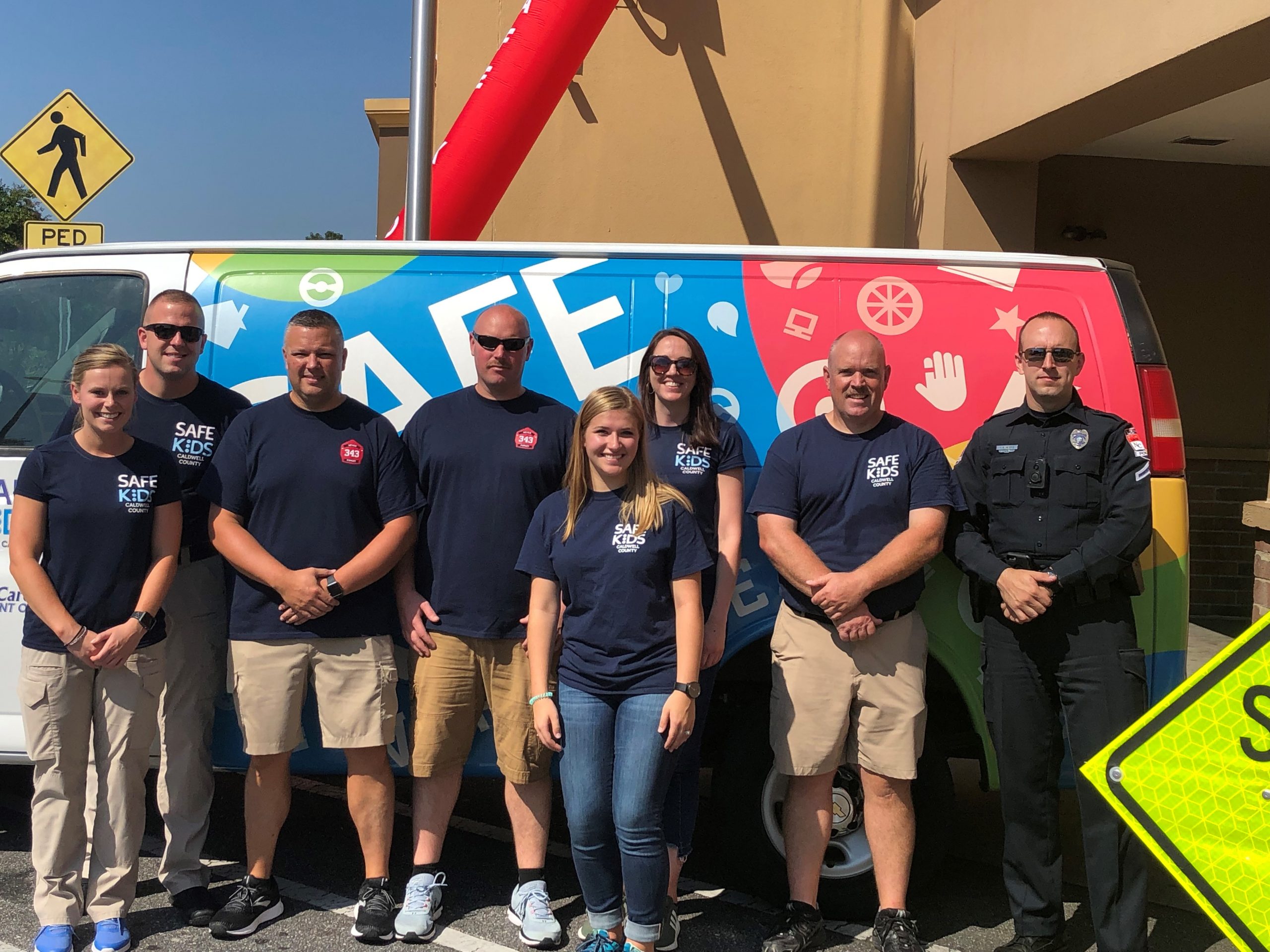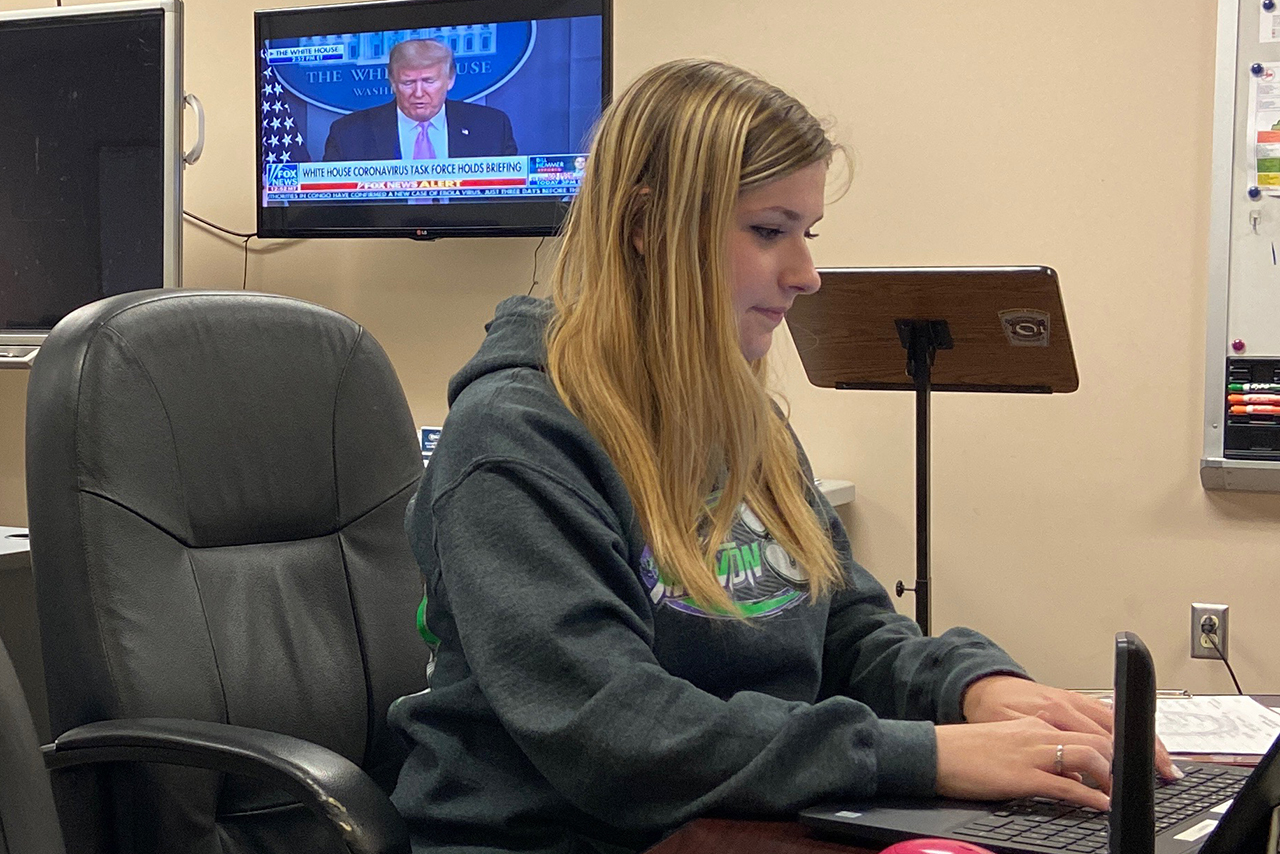In her epidemiology class, Taylor Lehman ’19 watched Contagion. The 2011 film tells the story of how a deadly virus transmitted by respiratory droplets brings society to its knees while scientists rush to create a vaccine.
Lehman wasn’t worried.
“I thought there was no way we were ever going to have a pandemic, not even an epidemic,” she said. The Illinois State graduate in health promotion and education (HPE) headed to western North Carolina last summer to begin a job as a public health educator. She loved the mountain views, as well as her work educating parents about car seat safety and the dangers of co-sleeping.
And then March came, and everything changed. The Caldwell County Health Department, along with the rest of the country, started preparing for coronavirus (COVID-19). Lehman’s role shifted dramatically as she started working 12-hour shifts as the county’s communications deputy, providing daily virus updates to schools, law enforcement, first responders, and churches.
“Every day I’m thankful I went to ISU. The health promotion education program covered everything I could possibly need.”–Taylor Lehman
On April 1, North Carolina’s governor issued a 30-day stay-at-home order, and the county’s emergency operations center opened. Lehman answered calls from residents asking what they could, and couldn’t, do. If they needed food or medications delivered, she took care of that. Pastors wanted to hold church services, and so did residents. She told them they could have multiple services with no more than 10 in attendance, drive-in services with no more than 50, or offer services online.
“We were trying to figure out what they could do, especially since a lot of the population is older,” Lehman said. “We started having all the churches ring their bell at noon on Sunday. It gave them a sense of togetherness.”
At Illinois State, she learned how to make infographics, which she used as a tool to communicate with residents. As of the end of April, the county had recorded 25 positive cases and no deaths.
“We’re really making an impact,” Lehman said. “This is what I wanted to do and what I studied for. One of the things ISU really prepared me for is community outreach. I don’t get nervous or stressed. I’m so thankful our counties haven’t had to face any deaths, but our neighboring counties have and that just breaks my heart.”
Lehman grew up near Seattle, Washington. Her high school teacher Steve Calhoun, M.S. ’89, had an Illinois State University banner hanging in his classroom. She wanted to pursue a career in health sciences, and he told her she should check out Illinois State.
“I told her that the hospitality she would receive being at ISU would be like no other school that I have been around and how everyone in the Midwest is so incredibly nice,” Calhoun said.
She fell in love with campus during one visit the summer before her senior year. She started out in athletic training, but switched to the HPE program in the Department of Health Sciences her sophomore year.
“That’s when I knew I was exactly where I needed to be,” she said. “ISU’s health promotion and education program is the best thing that happened to me. The program prepared me to serve as the best possible health educator for my community. Every day I relate something that I’m doing back to my education. The pandemic shows how important public health is.”

At an event held before the coronavirus pandemic, Taylor Lehman conducts car seat checks at a local Walmart.
Lehman called Associate Professor Dr. Jacqueline Lanier ’96 her “rock” through the program.
“She really inspired and motivated me daily, and she still does. Also, Dr. (Alicia) Wodika had such a heavy impact on how much she cared for us and how we can care for the community. And Christy Bazan, she was always very particular about things, what we should and shouldn’t do with infographics and posters. If it wasn’t for that class, I don’t feel the materials I created and posted on social media would have had such a big reach.
“Every day I’m thankful I went to ISU. The health promotion education program covered everything I could possibly need.”
And that includes pandemics.
Connect with our academic departments through a virtual session to learn more about the health promotion and education program or about other majors from among Illinois State’s 150+ fields of undergraduate study.

